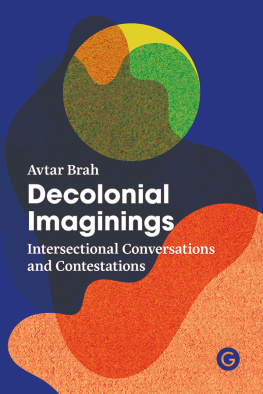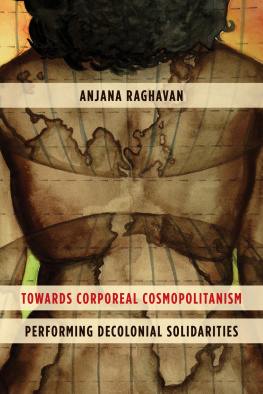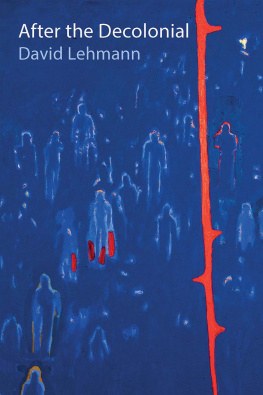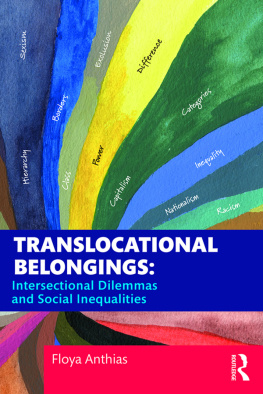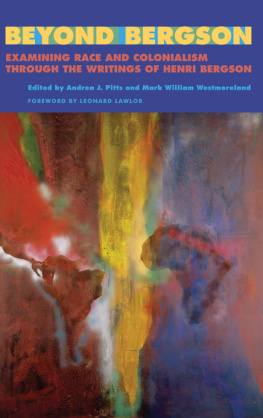Decolonial Imaginings
This book is a transdisciplinary study of the ways in which mobilities take social forms and result in multiple belongings. Situated within the confluence of decolonial feminist theory, border theory, and diaspora studies, it explores borders and boundaries and how politics of connectivity are produced in and through struggles over difference. It examines multiple formations of power embedded in the intersections between gender, race, class, ethnicity, and sexuality. Inter alia, the text analyses this intersectionality in relation to diaspora; theorises the relationship between diaspora, law, and literature; and between affect, memory, and cultural politics.
In detailing crossings of impervious borders, the book foregrounds the economies of abandonment such as the plight of people in boats in the Mediterranean when a number perished because of a catalogue of failures by NATO warships and European coastguards. Such examples of violent histories leave deep scars and traumas, yet there can be a creative reckoning and resistance in biographies marked by them, as exemplified here by the lives and mobilities of young Black women at the turn of the twentieth-century USA mapped by Saidiya Hartman who describes the women as making a sexual revolution. The book revisits the Gilles Deleuze and Felix Guattaris notion of nomad thought and seeks to assess this frameworks value today. It analyses the politics of Black in Britain with a focus on feminism constituted by women of African-Caribbean and South Asian background. The book also explores stereotypic representation of Muslim women in the context of Islamophobia and anti-Muslim racism, and the complexities of the #MeToo movement and how whiteness is configured in these contestations.
Decolonial Imaginings
Intersectional Conversations and Contestations
Avtar Brah

Copyright 2022 Goldsmiths Press
First published in 2022 by Goldsmiths Press
Goldsmiths, University of London, New Cross
London SE14 6NW
Printed and bound by Versa Press, USA
Distribution by the MIT Press
Cambridge, Massachusetts, USA, and London, England
Copyright 2022 Avtar Brah
The right of Avtar Brah to be identified as the Author of this work has been asserted by her in accordance with sections 77 and 78 in the Copyright, Designs and Patents Act 1988. Every effort has been made to trace copyright holders and to obtain their permission for the use of copyright material. The publisher apologises for any errors or omissions and would be grateful if notified of any corrections that should be incorporated in future reprints or editions of this book.
All Rights Reserved. No part of this publication may be reproduced, distributed or transmitted in any form or by any means whatsoever without prior written permission of the publisher, except in the case of brief quotations in critical articles and review and certain non-commercial uses permitted by copyright law.
A CIP record for this book is available from the British Library
ISBN 978-1-913380-08-3 (pbk)
ISBN 978-1-913380-07-6 (ebk)
www.gold.ac.uk/goldsmiths-press

d_r0
In memory of my brother Tar
Much loved, much missed
Contents
One of the pleasant tasks of writing this book is the opportunity it gives me to thank all those who have encouraged and supported me while it was being written. The idea for the book came from Yasmin Gunaratnam, who nudged me into action through continuing encouragement. I am deeply grateful to her for that. Sreya Banerjeas assistance in preparing the manuscript has been indispensable. Thanks to Susan Kelly and Ellen Parnavelas at Goldsmiths Press for their enthusiasm for the project.
I am incredibly lucky to have very supportive friends. They have provided encouragement throughout this project. Special thanks go to: Floya Anthias; Les Back; Filomena Fernandes; Irene Gedalof; Catherine Hall; Sushila Khoot; Gail Lewis; Lata Mani; Sulekha Nath; Ann Phoenix; Nirmal Puwar; and Nira Yuval-Davis. Irene Gedalof, Catherine Hall, and Sarah Kember read the manuscript in its entirety. I am grateful to them for their valuable comments.
Until recently, I have been a long-term member of the Editorial Collective of the journal Feminist Review. I am grateful to the members of the Collective for making this an important political and intellectual experience. I have also been a trustee of the Feminist Review Trust, which has been providing grants to projects in the UK and internationally that support women. I would like to acknowledge the support of my fellow trustees of the Feminist Review Trust.
I wish to thank Klaus Stierstorfer for convening the stimulating colloquia at Villa Vigoni, German-Italian Centre for the European Dialogue, on Lake Como, Italy, where some of the work in the book was first presented. Thanks also to Nilufer Bharucha and Sridhar Rajeswaran whom I met at Villa Vigoni, and who have since become friends. I appreciate their support.
I wish to remember the late Stuart Hall for his friendship and inspiring work.
I am grateful to my family for their support over the years. No words can fully express my debt to my late parents, Dhan Kaur and Bachan Singh. Very special thanks to Bhupinder, Sareeta, Balraj, and Amerjit for their ongoing encouragement and support. Much love to the youngest members of the family, Amara and Yash, children still, with the future yet to unfold. They never fail to bring a smile to my face.
I am immensely thankful to Pervaiz Nazir for constant help, support, and encouragement.
This book is dedicated to the memory of my brother, my namesake, Avtar Singh Brah, whom we lovingly called Tar and who left us while I was working on the book. We spent a carefree childhood together in Jinja on the banks of Lake Victoria and at the source of the River Nile. In London, he was a means of great support. I always knew I could rely on him. I will always miss him.
Acknowledgement of Sources
Some of the chapters that follow are revisions of material published previously. For permission to reprint I would like to thank the following: For
In December 2019 the world began to change under the seismic impact of the Covid-19 pandemic. By the middle of May 2021, over three and a half million people had died of the virus worldwide. Populations have been devastated as have the economies. Global lockdowns have been introduced in which households, friends, lovers, colleagues, indeed whole populations, have had to go into self-isolation. Media reports for England and Wales reveal that people in deprived areas have experienced a death rate that is twice that of those living in more affluent areas. There have also been disproportionate deaths among men, older people, frontline workers, and Black and minority ethnic groups. The reasons for these disparities are complex and there is ongoing debate. In the case of Black and minority ethnic groups, socio-economic disadvantage for which sustained evidence has accumulated over the decades, and the effects of racism would seem to be among the key factors at work. Black and minority ethnic groups in Britain are more likely to work in high-risk frontline jobs in health care, public transport, caring professions, and retail, especially in essential corner shop work. They tend to live in deprived, crowded areas, and some reside in multigenerational households with limited space. Black and minority ethnic patients with Covid-19 have been found to be more likely to have pre-existing medical conditions such as high blood pressure and diabetes compared to white patients but this differential too has been found to be related to socio-economic disadvantage. There is much that is still unknown but Nish Chaturvedi, professor of clinical epidemiology at University College London, insists against one misconception: Some suggest that genes can account for the excess risk of : 28). In other words, the pandemic has highlighted political cleavages when multiple social dimensions such as gender, class, age, sexuality, disability/debility and racialised difference intersect and define everyday individual and group realities at the heart of the major crisis we face today.

